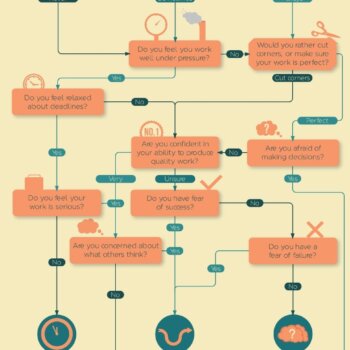So what measures can you put in place to avoid being a negative statistic, giving your business a better chance of doing more than just surviving?
Do your research Yes, I know it sounds boring but researching at least the basics about your market (e.g. trends, scale), target groups (where they spend their money and time), and competitors is essential to inform the rest of your business plan.
How are you helping the market? For most businesses to succeed you need to have a pretty clear idea about what problem your business is providing a solution for and/or what need you are meeting. If you’re thinking of entering an already busy market, consider how you’re going to differentiate your business from competitors. What are you going to do that’s better?
Keep listening and talking to customers This sounds obvious but it’s surprising particularly during the early years how we can be so focused on getting the business off the ground, learning the ropes and managing day-to-day that we forget the most basic of requirements for a successful business to listen to and talk with your customers. Create an authentic and meaningful relationship with them to engender loyalty and make sure you’re meeting their often changing needs.
Don’t take everything on yourself Easy to do in the early days when money is often scarce, but take a long, hard, and honest look at your skillset and time available. Consider outsourcing anything you’re not so good at. Doing your accounts is an obvious one (particularly if you’re Limited company) but help with administration or sales could be equally valuable. Ensure your network of colleagues complements your own skills and knowledge and don’t forget tokeep an eye out for collaborative opportunities with complementary businesses – so much more can be achieved with a collaborative effort
Avoid starting with debt Being under-capitalised is one of the key reasons why businesses can fail. If your cash flow is poor to start with you could face an uphill struggle making the figures stack up. If you’ve done the figures and are short of money to start up take a look at some of the alternative funding sourcessuch as crowdfunding (I’ll be writing a blog about this very soon) or even for small amounts your local credit union.
Find a mentor Many new initiatives that have started in the last year encouraging start-ups and existing businesses to find and benefit from a mentor. Some of these are volunteers and others charge a fee. Recent evidence suggests 70% of mentored small businesses survive longer than 5 years (double the number of non-mentored enterprises) so finding a mentor or coach isn’t really an option anymore, it’s essential.
Consider finding a Non-Executive Director This option isn’t for everyone however if you have genuine aspirations to grow your company quickly but need investment and skills to do that, you may want to consider finding an Investing Non-Exec. Once the domain of large corporations, an increasing number of start-ups are now choosing this route to add credibility to their management team as well as much needed funds and contacts. You can read more about this with some case studies here.
Test-trade or work 5-9 Thousands of people right now are holding down full-time jobs whilst starting a business of their own. They do this by working what is commonly referred to as the ‘5-9’ shift although in reality of course the hours are much longer! Test trading in a small way and/or working 5-9 can be an excellent way to find out a) whether you’re suited to being self-employed (it really isn’t for everyone despite what you may hear others say!) and b) help you determine basic information such as whether there really is a market for your business and if so how much people will be prepared to pay for your product/service.
by Loraine Allman of SME-Blog. see more.





























